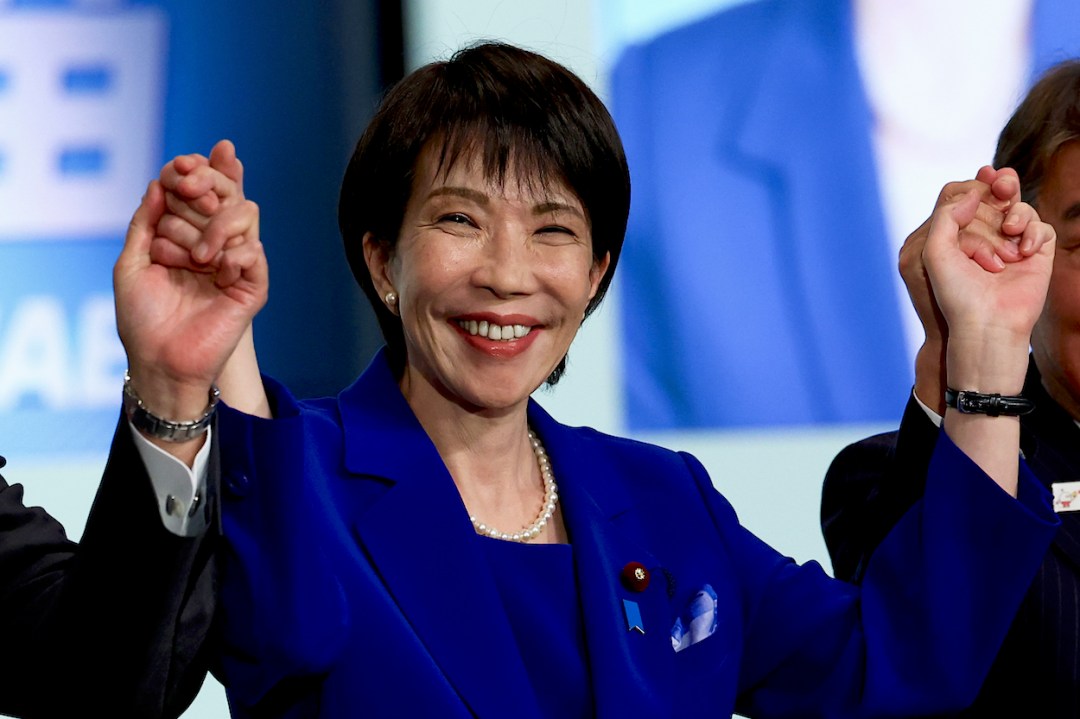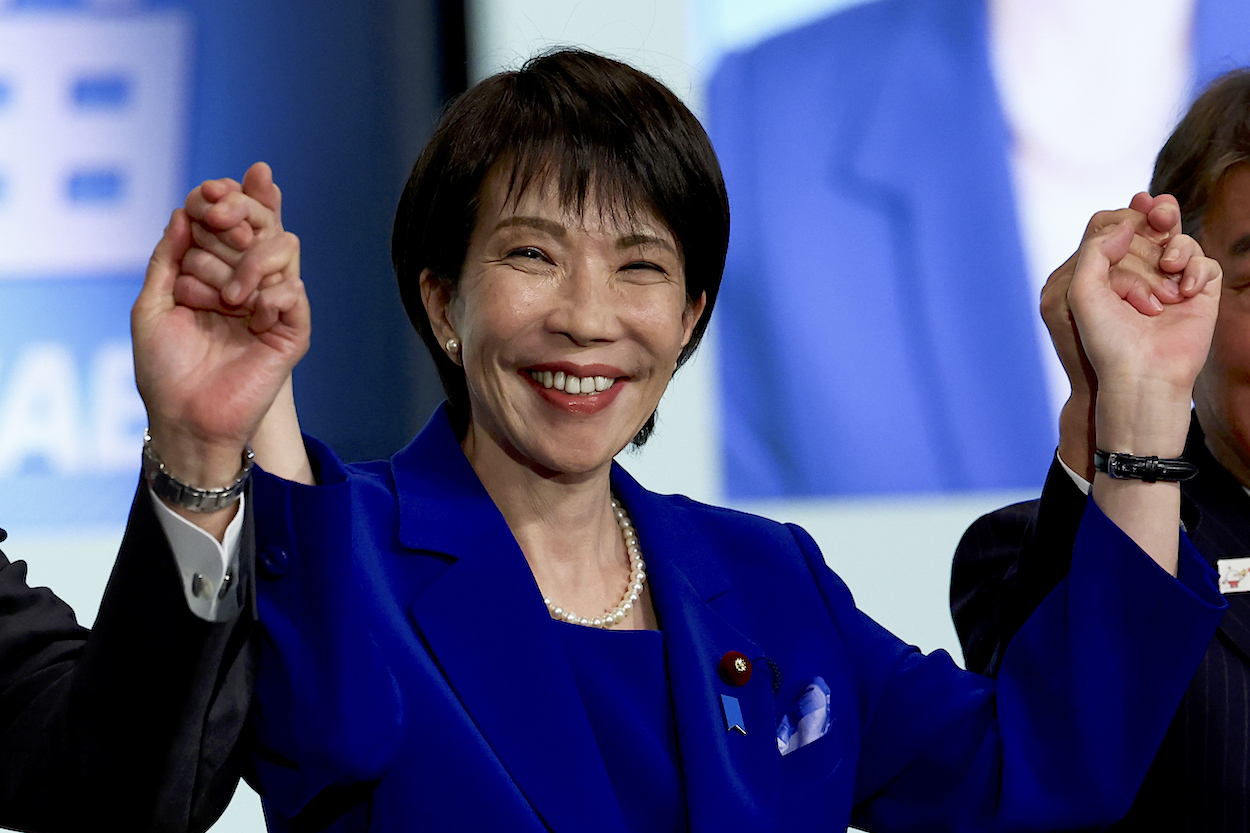Japan is to have a female prime minister. Well, probably. Sanae Takaichi, the 64-year-old conservative veteran, has at the third attempt won the presidency of the Liberal Democratic Party (LDP) – which brings with it the bonus of being prime minister. Or at least it usually does. The LDP are currently in a coalition government, so Takaichi’s appointment will need to wait a couple of weeks to be confirmed at an extraordinary session in the diet (the national legislature).
You might think the Japanese, feminists especially, would make something of having their first female prime minister, but the news has elicited not much more than a shrug here. There has been little fanfare and still less rejoicing. Indeed, the news of the prospect of the first female leader has been matched or even eclipsed in bulletins by the impending shortage of Asahi beer and Shohei Ohtani’s continued brilliance in the MLB. No one seems particularly interested in Takaichi.
There are a number of reasons for this. Firstly, rather prosaically, people are perhaps a bit stunned. Takaichi wasn’t expected to win. All those supposedly in the know were pointing to agriculture minister Shinjiro Koizumi, son of former prime minister Junichiro, whose time it appeared had come. But young Koizumi, who has always had a reputation for being nice but a bit dim, blundered spectacularly when it was revealed that his team had been asking people to inundate websites and forums with flattering comments about their man and unflattering ones about Takaichi, like a dodgy hotelier trying to boost his Tripadvisor rating.
This was just the kind of tawdry cronyism that has turned the Japanese public off the LDP, and politicians in general, in recent years. What impact it had on the lawmakers tasked with choosing their leader (this wasn’t a public vote) we’ll never know, but it is entirely possible it cost Koizumi the top job. In which case, Takaichi was a sort of winner by default, which partly explains the subdued reaction.
Then there is Takaichi herself. The former economic security minister has advanced steadily throughout her career but has managed to alienate as many people as she has impressed. What most people know of her it that she is an arch conservative, in favour of revising the pacifist constitution, and taking a much tougher line on immigration (which is starting to become a serious issue here). She is opposed to same sex marriage and endless apologising for Japan’s wartime record.
She is a leader quietly admired by conservatives, rather than one likely to inspire the sort of ‘progressives’ who rail against Japan’s supposed gender iniquities. As Professor Jeff Kingston of Temple University puts it, Takaichi has a ‘strong conservative, family and social values emphasis’. A bit like her heroine, Margaret Thatcher, Takaichi won’t get credit for her trailblazing because she is on the wrong team.
Also, like Thatcher, Takaichi doesn’t complain too much of gender discrimination, so the issue did not gain salience in the campaign. She evidently doesn’t believe herself to be greatly disadvantaged now, though she once did. She has been quoted as saying that when she first entered politics 30 years’ ago, being a woman in the LDP was like being ‘an ant up against and elephant, but it is totally different now.’
In 25 years in Japan, I’ve yet to meet a woman who wanted to be a politician
By that, Takaichi must mean that attitudes are totally different, not participation. Only 15 per cent of politicians are women and outgoing prime minister Ishiba’s cabinet contained only two. Takaichi seems unconcerned. She has spoken of tax breaks for companies offering in-house childcare and tax deductions for babysitting fees, but no one takes her too seriously as a crusading feminist (she opposes changing succession laws to allow an empress regnant). It is expected she will champion her mentor Shinzo Abe’s policies promoting women in the workplace to some extent, but within a pretty traditional framework.
This may suit Japan, which with its cultural and religious foundations cherishes traditional societal roles. Takaichi is probably right that far more opportunities are available to women now, but that doesn’t mean women actually want to take advantage of them. In 25 years in Japan, I’ve yet to meet a woman who wanted to be a politician. A female Japanese media executive told me recently that she had once been urged to move into politics and offered a safe seat, but wouldn’t do it for all the green tea in Japan. ‘An utterly dreadful job’ she said. ‘All they do is read prepared scripts. They have no real power.’
This hints at Takaichi’s real problem. She will lead a minority government, at the head of a declining party in a country beset by problems, menaced by enemies, and mantled in decline. Looming over everything in Japan is an aging society with a record low birthrate and a colossal public debt. These feel like existential problems beyond the wit of any man or woman. No wonder the Japanese are unenthused.









Comments